‘A passport to liberation’: The inside story of What It Feels Like For a Girl, 2025’s buzziest LGBTQ TV show (EXCLUSIVE)
“I feel blessed to be part of a show that humanises trans people, that has queer people in the very fabric of it,” says Ellis Howard of this electric memoir adaptation from media figure (and former Attitude columnist) Paris Lees
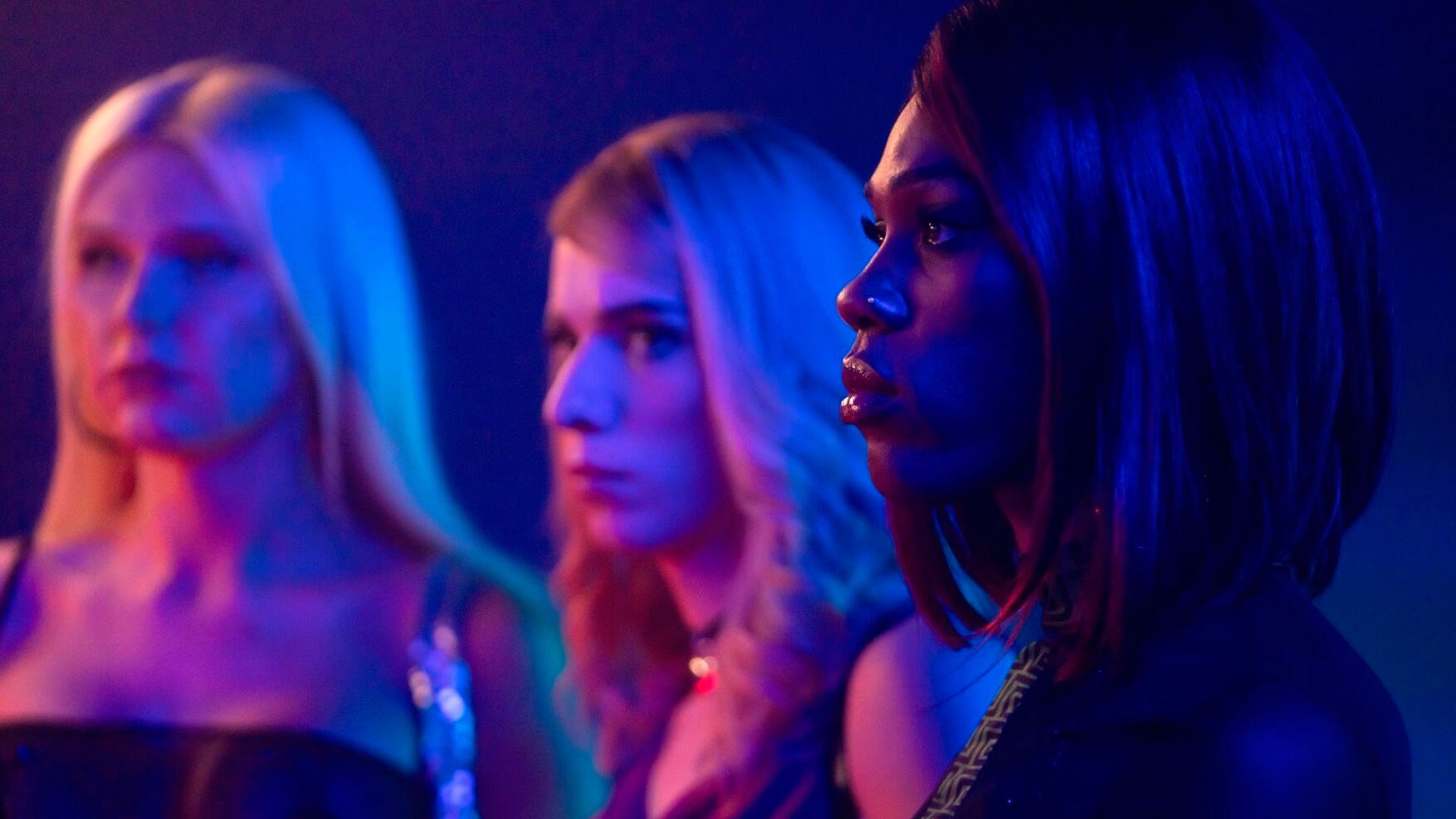
“This show is going to bring a sense of community and light for trans people stuck in those awful towns like I was as a kid,” says rising star Hannah Jones, through tears, before reflecting on her new TV show’s theme of found family that will resonate with many LGBTQ people. “Even if you’re in that awful place – Hucknell for example! – with parents who don’t understand you, people around you at school who just don’t get you, there is refuge. There is family in your not-blood family.”
Attitude is chatting with the cast of What It Feels Like for a Girl, the BBC’s electric eight-parter based on the memoir of the same name by media figure and former Attitude columnist Paris Lees, one of the most prominent trans people in the country. Ellis Howard plays main character Byron, based on Paris: an irrepressible teenager from Nottinghamshire whose journey to accepting their queerness is one of the most gloriously chaotic ever seen on screen.
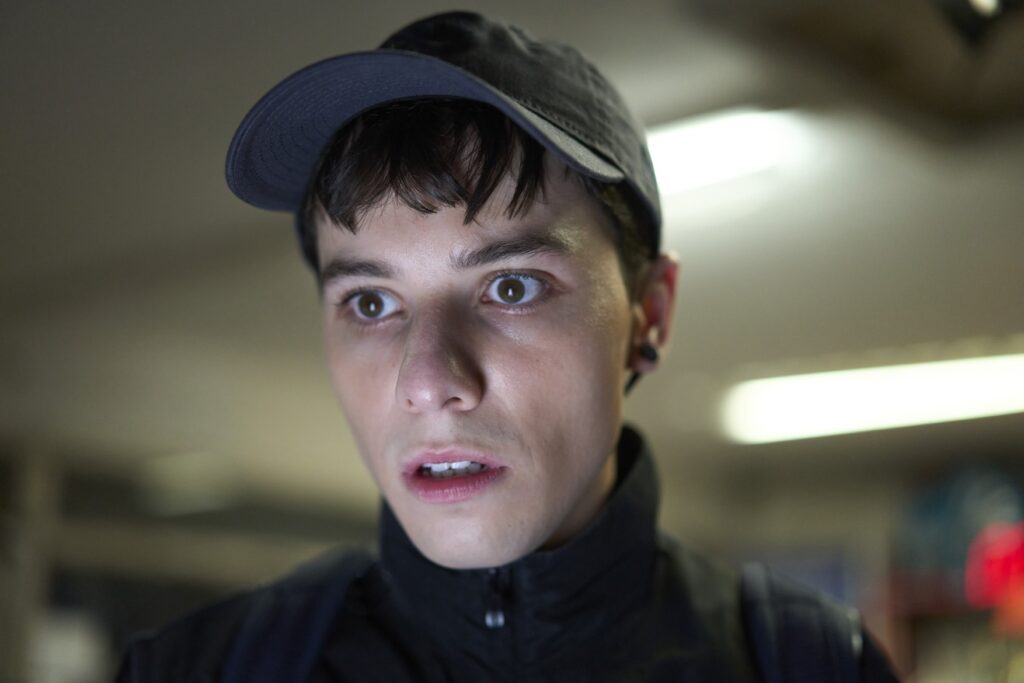
“We meet Byron at 15,” explains Ellis. “Sick of mum and dad, sick of being beaten the shit out of [at school], knows who they are but doesn’t have language for it yet, until they meet ‘The Divas’. What happens is, they go on this odyssey that is immoral, illegal, but always loud, fun, hedonistic and anarchic, into finding themselves. Often, in finding yourself, you lose yourself as well.”
Hannah plays “Scouse Regina George” Sasha, frenemy and foil to Byron, Laquarn Lewis plays the third member of ‘The Divas’, Lady Die, and Jake Dunn plays Liam, a terrifying emblem of toxic masculinity, and the subject of both Byron and Sasha’s desire.
“Liam is someone who meets Byron in particularly disturbing circumstances, from a very charged, intense, magnetised experience with each other, which changes both of their lives forever,” explains Jake. Laquarn adds of Lady Die: “We find her in episode one, introducing Byron to her chaotic, promiscuous, hilariously mental group. Die is one of those people who is so loving, supportive, but wants to have a heck tonne of fun.”
“We meet Sasha at a really weird time in her life,” adds Hannah. “She’s fighting to survive. She’s not got parents behind her. She grew up in care. She’s got her group of friends around her, but that’s really it. The only man she’s got in her life is Liam, and he’s not a great person. She’s doing what she can to survive. Sex work, she’s stealing drugs from people – crazy – and as much as Byron goes on a journey of self-discovery, Sasha discovers herself through Byron, and through the love she feels towards Byron.”
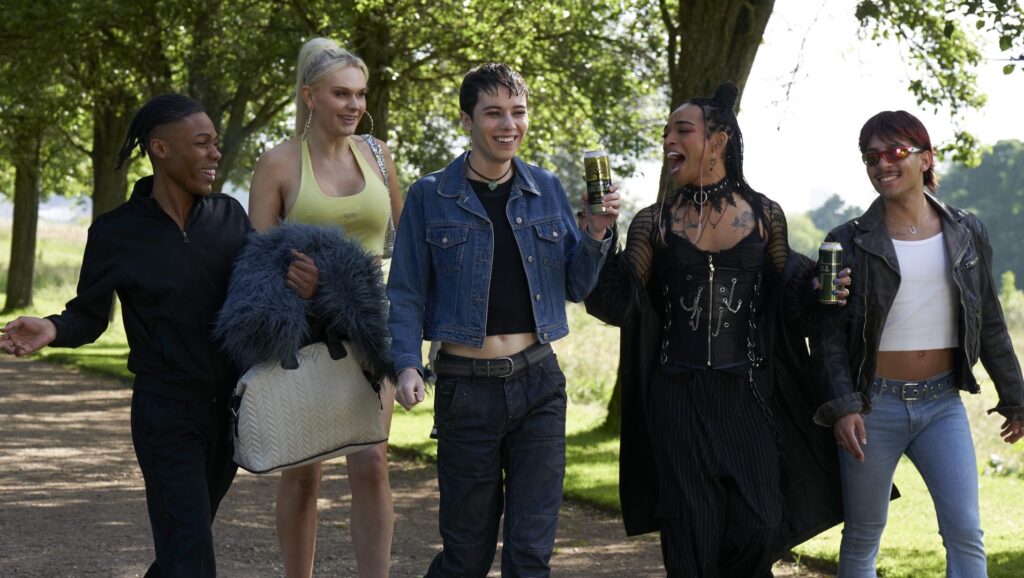
There are a lot of tears during Attitude’s 20-minute conversation with the foursome. Weeks earlier, the UK Supreme Court ruled that the terms “woman” and “sex” in the Equality Act 2010 refer exclusively to biological sex, excluding transgender individuals — even those with Gender Recognition Certificates — from these definitions.
“It’s just sick,” says Laquarn. “What we’re doing is going backwards. Regression isn’t nice. We need to unite and stay strong and fight for what’s right. I’m so grateful to be a part of this.”
Here, we chat to these four exciting young actors about their relationships with Paris, their messages for queer youth and why LGBTQ representation is more important than ever in 2025.
How does it feel for the show to be coming out, and to be part of a piece of storytelling that is going to be so meaningful to trans people everywhere?
Hannah: Someone else go, because I’ll start crying.
Ellis: I feel so incredibly lucky. From the moment I first read the book, she’s so unflinchingly honest in the book. Then, to come on set, that was carried through. It forces you to be honest as an actor. I felt [satisfied] creatively but also as a human being. I feel so blessed to be part of a show that humanises trans people. That has queer people in the very fabric of it. To be doing it with a cast that I completely love. I feel like the luckiest person ever.
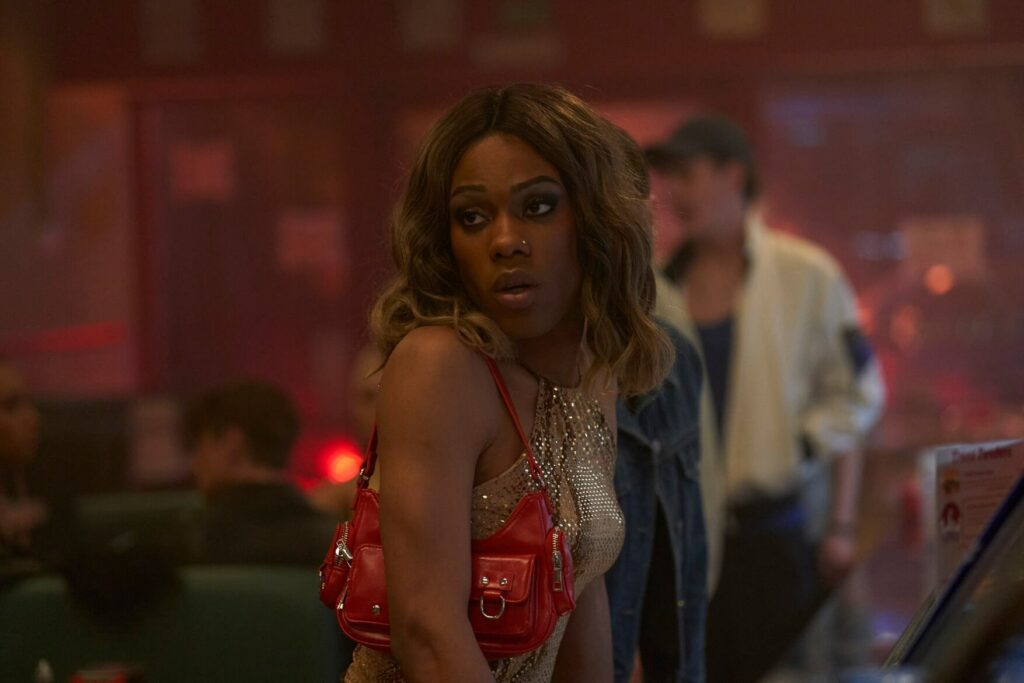
Laquarn: That was beautiful.
Hannah: As unfortunate as the landscape for trans people is, I think it’s so beautiful to see a show authentically just live its life. [Starts crying] As queer people, we soften ourselves down quite a lot. The show doesn’t do that. Go for it. Be yourself. It doesn’t matter. In the grand scheme of things, we’re living on a rock, as crazy as that sounds. Do what you want to do. Live how you want to live. Love how you want to love.
Laquarn: I second everything you’ve just said there. I feel so grateful to be able to help spread the message that trans people are people. These deserve human rights. They deserve to be heard. With this platform, Paris has allowed all of us to be a part of such a deep and raw story. There’s representation from all different queer backgrounds in this. And it’s what is needed at this moment in time. Obviously, it’s a very individual story, but within that, you’ve got trans people who are all at different stages. They’re all fighting similar battles, and very different battles. It’s like, let’s show the world what some trans people are going through. The majority. Let’s broadcast that. Let’s show why we need change. Look at the awful things they’re experiencing.
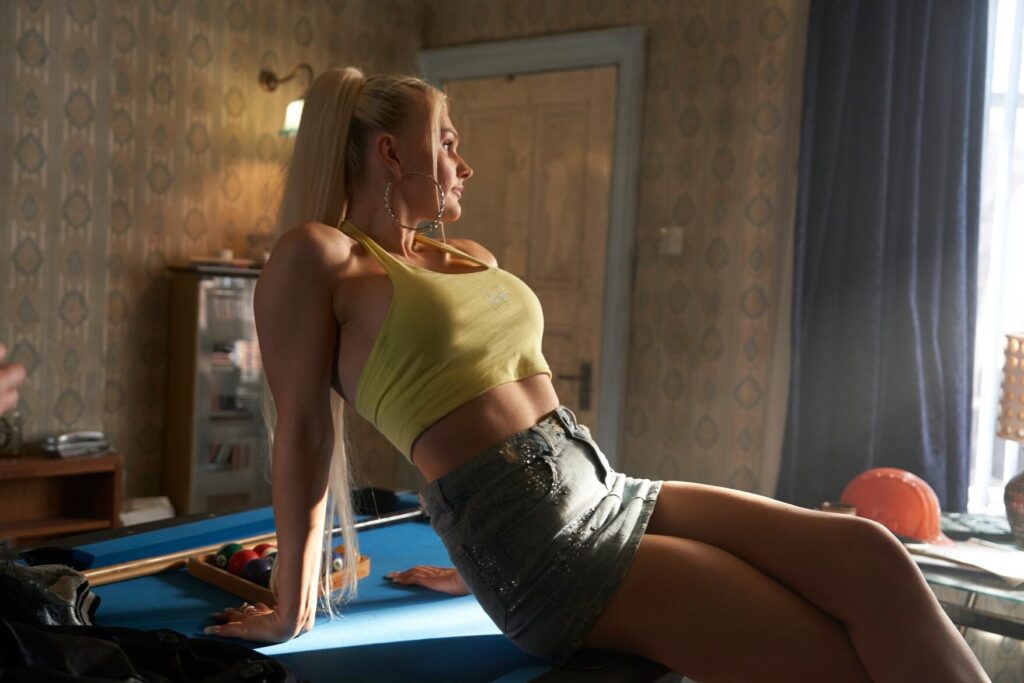
Jake: I’d second everything said much better by Ellis, Hannah and Laquarn. Laquarn and I really related to the Nottingham experience. The intersection of being trans or being queer and working class; the people around that, and what it might mean to be a survivalist in that community, it’s not all the kindest, nicest most well-packaged life. It’s also brutal and difficult. And throughout, heart and love remain in the show, because of the point of view we got to be a part of, which was Byron’s. How cool is it for me to be orbiting these three at all? And Liam, in his own way, has very strange circumstances.
Can you name on thing you relate to about your character?
Laquarn: I believe Lady Die, as much as she’s not me at all, I do relate to her a lot. In terms of her strength. Her ability to keep going no matter what. That’s something I had to realise at a young age. It’s something I admire. Strength in anything in life. I took that from Die, further than I’d already taken it myself. Seeing her put herself first, finally, after quite a lot of time – not giving any spoilers – then you will see she gets to the best point she’s ever been at in her life after doing that. I think that also reminds me that sometimes, it’s good to focus on yourself.
Hannah: Now, Sasha’s carefree. She’s like, I’m just gonna do it. In the grand scheme of things, who’s bothered? She’s very that. She acts on a whim. I like to be [like] that.
Jake: I don’t relate to being a pimp! I don’t relate to being a drug dealer, or a coercer of 15-year-olds. Something I found interesting in Liam, is his need to build a persona. To build himself quite hard, as a way to survive. While I’ve not had that intricacy, I do understand the need for armour. He lets the armour change who he is as a person, rather than being open enough to be vulnerable. And he is. He’s got no prospects. He’s a survivalist. He doesn’t have a way out. So, I’m sympathetic, a little bit.
Ellis: I relate to the thrill-seeking, the danger of it all. Real life turned up to 100. I love to feel overwhelmed. Living life as a million miles an hour. Colliding with myself in this chaotic maelstrom! I relate to that and understand what it means. It’s an energy, from not feeling seen in your childhood. Then, once you find yourself, it’s like: ‘You’re not gonna shut me up!’ What don’t I relate to – I’m not a trans woman, but what I do relate to there is, whilst Byron’s journey is a pilgrimage from A to B, and there’s language for that, my queer journey has been really torpedoed by this show. I’ve had a renaissance, joining this show. I feel queerer than ever. I’ve found my tribe. I’ve really echoed Byron’s journey in that. My queerness is still messy. There’s a point of difference, but I still like to think there are moments where we touch. This is like the Wicked press tour, isn’t it?!
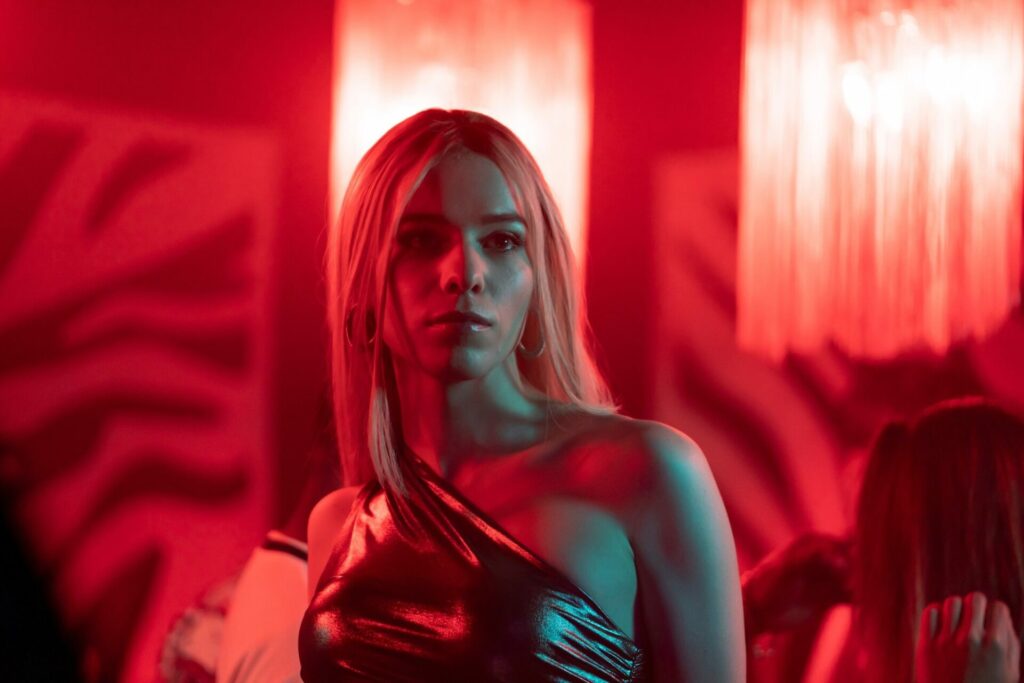
I interviewed Cynthia and Ariana on the Wicked press tour!
Ellis: Oh, did you?!
Laquarn: Gagged.
But this is just as good!
Ellis: Write that in the article. ‘Just as fun, just as well-dressed.’
I will, but now it’ll look like I’m a massive name-dropper.
Ellis: We all do it!
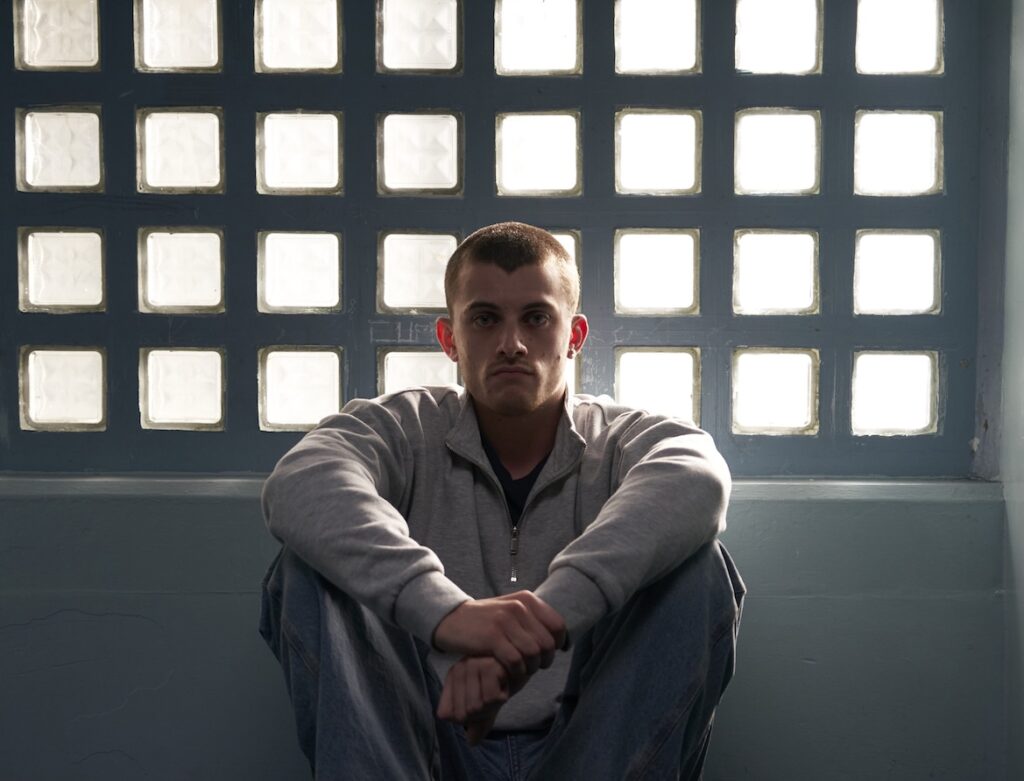
Did you ask Paris questions while building the characters?
Hannah: I met her after getting the job. We went for dinner. I was asking questions about Sasha. All the [information] I had was from the book, and she’s a very different character from the book, completely different. So, I said: give me the lowdown. She’s based off three different people. And I really got to know what [some of the other] characters put Paris through, how violent they were, how horrible they were. Paris was so open. She brought pictures from the era and showed them to me. I also think queer people in general, but especially as trans women together, we bonded straight away. It’s a sisterhood, and you cling to it. Paris and I have found that, and especially at the minute, we’re really clinging onto each other.
Jake: I asked Paris several questions about Liam. He’s, again, an amalgamation of a few different people. But I think, personally, I wanted as little knowledge about who Liam is based on as possible. I based him off of a few of the lads I know from Derby and Nottingham. I felt that was informed and enforced by Paris. She gave me that freedom to do it, which I really appreciated.
Ellis: I don’t know how to describe our relationship. She’s my north star in this, obviously, and if I’m honest, I find her incredibly liberating. If I have one person to impress here, to tell me I’m doing a good job… I’m so desperate to be respectful, to capture nuance. The book really did bring a lot to me. But those first few weeks were more or less just Jake and me filming. I was like: Jake, I just want to know I’m doing it right for her.
Jake: And as you said that, it happened. You hit the marks.
Ellis: We went to the monitor, and she was crying at the monitor. She said: ‘You’ve got me. This is exactly who I was. This is perfect.’ I just want to do her, and her life, and her story, justice. Her essence and complexity. She was the project for me. I feel really lucky that she’s now one of my friends. I incredibly respect her as a writer and a creator, and now as a mate. I feel really lucky to say that.
Laquarn: I feel, honestly, the exact same way. Having Paris involved helped so much for character research. I spent a lot of time with the character, so I did feel comfortable, but finding out certain things about how Die was, Die’s sort of physical characterisation, humour… I did get to meet the real Lady Die! Paris called me one day, came and picked me up, and the three of us went to Newstead Abbey, and spent the day together. We chatted and I got to ask everything I wanted. It was really helpful. The real Lady Die told me as well that she’d seen my auditions and was really happy with the choices I was making already. It’s good to have that sort of self-belief early, so you don’t doubt yourself and get in your head with everything. Not only that, but just hearing feedback was so helpful. In your mind you’re like: ‘Am I attacking this right?’ Me, myself, I’m not a woman, so I had quite a lot of doubt. ‘Oh my god, am I doing this justice?’ Some of the things Paris would say, like: ‘Actually you are doing this just how the real Lady Die wants you to do it. This is her in a nutshell, and you’re cracking it.’ It was really nice to hear.
What is your message to LGBTQ youth affected by what they see? They’re going to be inspired, but they may also be in pain.
Ellis: The show is a passport to liberation. Be loud. There are people there to catch you. It’s time for community and structure, and to lean on that.
Laquarn: I think with this show, there are themes where people might be like: ‘Oh my god, young people should not be watching this!’ I think the stuff that is going on – at the time, Paris was 15, right? – that in itself is a really young age to experience this abuse and turmoil. I feel like it’s definitely important to make sure people are aware, it happens literally to people younger than 15. It’s highlighting the importance of attempting to make people aware that this is going on behind closed doors. You’re not alone, there are people there to support you when you’re going through these things. You will find your people. You do belong. You are loved. And just keep going.
Hannah: I’ll go quickly, as I might cry again. All of us have come through similar backgrounds. One of the biggest messages I want to put across about the show, that I want people to take from the show, is that, like, even if you’re in those really shit times… [Starts crying] It sounds so RuPaul of me, but you can choose your family. It’s so important for people to understand that if you can’t find a family right now, you will find it eventually. And if you find yourself, you find family. And if you can’t find family just yet, you’ll find it in us.
All episodes of What It Feels Like for a Girl are on BBC iPlayer from 6am on Tuesday 3 June
